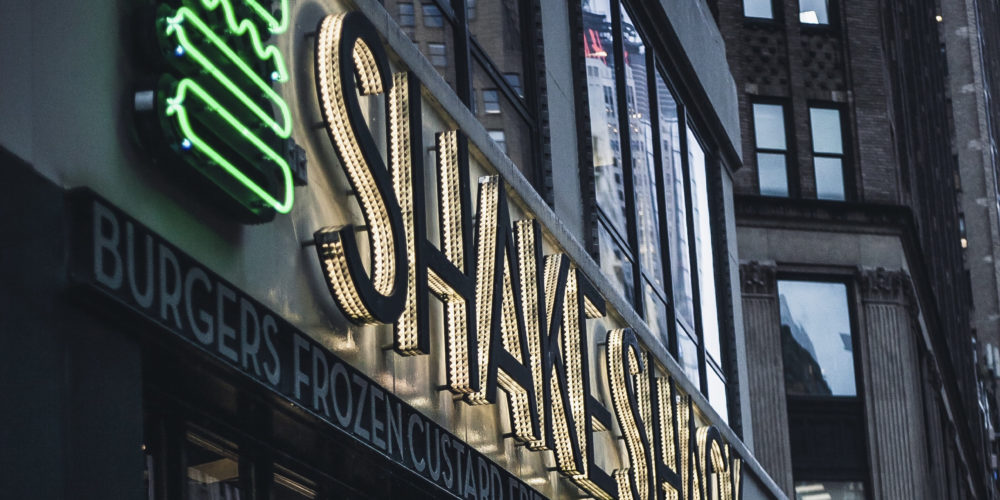Some timeless lessons in building a good business

You may have come across Shake Shack during your travels. It is a very successful restaurant chain, known for outstanding customer service. I recently listened to its founder, Danny Meyer, on a podcast with NPR’s Guy Raz. What I heard was a masterclass in entrepreneurship, so I thought I should share some key lessons.
Shake Shack today is valued at more than US$3 billion, but it had very humble origins – a single hot dog cart. So how did this happen?
Danny Meyer was deeply interested in restaurants from a young age, and turned down law school to enter a low-prestige, high-risk industry – against most people’s advice and against his father’s wishes. And he entered not from a position of theory and intellect, but by actually working at restaurants in junior positions – understanding the cooking and serving of good food.
In the mid-1980s, Danny Meyer opened his first outlet, in Manhattan. What did he do first before opening? He walked around. He walked and walked, and observed the neighbourhood, the people, the facilities. Eventually he found a spot he regarded as perfect, but there was already a restaurant there. He approached the owner and bought it out, taking on a 14-year lease with no prior restaurant-owning experience. The money was raised by borrowing from relatives.
That was the Union Square Cafe. His idea was this: high-end food, but served in a casual, welcoming environment. The cuisine and style were a hit, and patronage increased quickly. Meyer became confident enough to open a second restaurant, with its own name and individual identity – but, please note, a full nine years later. The Union Square Hospitality Group now runs a stable of individual restaurants.
How did this fine dining group venture into milkshakes and fast food, though?
A single hot dog cart was opened in Madison Square. This was a temporary non-profit venture, part of a collective community initiative to rehabilitate the area. The food became so popular that a permanent kiosk was created, serving the now-famous dogs, but adding burgers and shakes. Shake Shack was born.
The founder’s idea was not just food – but hospitality as well. Hospitality is different from service, Meyer tells us. Service is what you do; hospitality is a warm feeling you create in the recipient. Combining ordinary food with hospitality is what led to a whole new category of restaurant: fast food made well and served with heart.
There was no intention to create a chain, however; the second Shack did not open until many years later – and that too was only done to relieve the long queues at the first one. Number two also generated huge queues, though, and so the idea took root and Shake Shack eventually became a separate business, dwarfing its origins. Today there are more than 275 outlets across 14 countries.
To what does the founder attribute this success? What was so different? It’s the hospitality, says Meyer. Food you know, which evokes childhood memories; done better than you expected; served by people who are nice to you. Ka-ching.
One must never extrapolate just from one person’s success, or learn universal lessons from one experience, but there are nonetheless some timeless truths about enterprise in there. Did you spot them?
First, before you even begin: are you committed to this industry, this product, this set of customers? Do you want this to happen; will you go all in? Or is it just one option in your portfolio of possibilities? Commitment makes all the difference.
Next, don’t begin with a spreadsheet; start with the product and the customer. Understand how things are made; why they are needed; how they’re consumed. Roll up your sleeves and do the nitty gritty in your early years. Take it slowly; don’t rush to expand and ruin what makes you special. Be ready to fail, too; but learn and keep going.
Danny Meyer shared the best advice about business, from his grandfather: stop complaining about problems; problems are the definition of business. The best entrepreneurs are not those with fewer problems; they are the ones who solve them better. Meyer took this thought further – with whom do you want to solve those problems? Who should be alongside you? He built a team of like-minded comrades based on emotional skills, not just technical ones.
So: learn the basics by doing them, not just studying them; learn through interaction and experience; grow slowly but surely; and as you grow, build a team of folks that you actually enjoy being around.
You may have a question, though. What if this chap was just plain lucky? Great question. To be answered next week.
(Sunday Nation, 10 January 2021)

Buy Sunny Bindra's new book
The X in CX
here »
Popular Posts
- You are who you hang out withSeptember 28, 2025
- Born knowing the waySeptember 21, 2025
- The cost of pretenceSeptember 7, 2025
- The art of the CX rescueSeptember 14, 2025
- The balance sheet that mattersOctober 5, 2025















